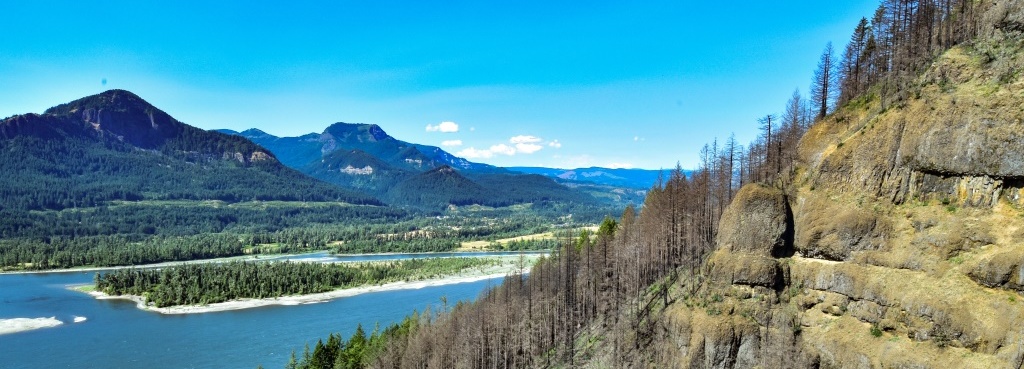Fire is a natural part of the life cycle of forests. At the right time and place, fire can play an important role in removing grass, weeds, and brush from the forest floor, creating new habitat for plants and wildlife. Managed fires by public agencies like the U.S. Forest Service can be an invaluable and mimic land management strategies used by tribes around America for millennia. But as we saw first-hand in southern Oregon last summer and in the Gorge in the summers of 2017 and 2018, unplanned human-made fires can be devastating. Climate change has made the danger even more acute here in the Pacific Northwest as the region sees drier and hotter summers than in decades before.
This year has seen an early start for wildfires in Washington and Oregon. While a May fire outside The Dalles was quickly contained, the S-503 fire south of Mt Hood on the edge of the Warm Springs reservation has already grown to include thousands of acres. With all of the six counties of that make up the Columbia River Gorge National Scenic Gorge in a state of drought—with most of the Scenic Area categorized as in a state of moderate, severe, or extreme by the U.S. Drought Monitor—extra care is called for as we approach the July 4 weekend.
Americans start twice as many wildfires on July 4th as any other summer day. In a study of wildfires from 1992 to 2012, over 84 percent of government-recorded wildfires were started by people. Last year, human-caused fires burned over 1.5 million acres in the Northwest with "over 4.1 times the number of human caused fires compared with lightning caused fires," according to a 2020 report by the Northwest Interagency Coordination Center.
As the climate changes, it is critical that all of us—Scenic Area county residents, tourists, campers and day-hikers alike—take extreme care and act as responsible stewards for our public lands. Forests are no place for fireworks. Fireworks should never be used on public lands, and in fact are illegal on federal and state public lands. We also ask all to tend Gorge campfires with care extreme. Be sure to follow all local advisories and if campfires are allowed by local land managers never leave a campfire unattended. To make sure it's out, when finished, douse it with water, not dirt.
If you do hit the trails, please follow all trail closures and advisories, staying on official trails, packing out any trash with you, being courteous and considerate of others on the trail and those who live in near communities by observing parking restrictions. If the parking area at a trailhead is full, try another location and have a plan B just in case. An interactive map of Gorge recreation areas—including hiking, biking, picnicking, and other recreation options—along with the current operating status can be found at ReadySetGorge.com. If you want to try taking a car-free trip this July 4th check out ridecatbus.org, operating by the Columbia Area Transit. We also have a list of Friends Staff-Recommended Trails available on our Gorge Hiking Opportunities page.
With our world finally opening back up, all of us are eager to enjoy the best of what the Pacific Northwest offers. But please remember that one careless action can turn an enjoyable outing into a deadly situation. Please keep fire out of your holiday plans in our great outdoors.

Kevin Gorman
Executive Director
Friends of the Columbia Gorge


